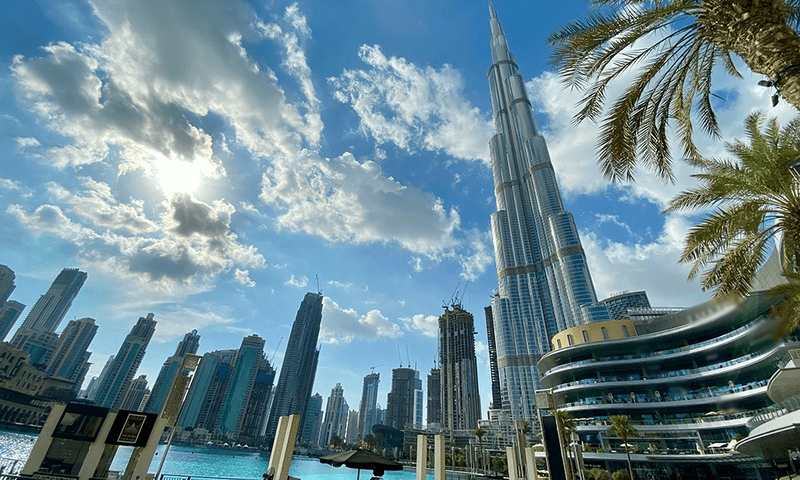Families often set up their family offices – a private company or team of professionals that manages their wealth and investments – in jurisdictions that combine favourable tax environments, financial expertise and legal stability.
They have two main categories: the single-family office, created to serve one family exclusively; and the multi-family office, serving multiple families, sharing resources and expertise.
The US is a popular destination for these offices, thanks to its deep financial markets, private equity/venture capital access, legal protections and large number of ultra-high-net-worth (UHNW) families.
Dubai’s GDP growth the result of a ‘multifaceted economic strategy’
Singapore is also known for hosting family offices – due to favorable tax incentives, stable governance, solid financial system and geographic gateway to Asia – as is Switzerland, with its strong banking tradition, political neutrality, wealth management expertise and privacy protections.
Over in the UAE, Dubai’s appeal for being a hub to manage one’s generational wealth is growing.
“Dubai, home to over $517 billion in private wealth, has solidified its position as a premier global destination for wealthy families to establish family offices,” said Mindaugas Suklevicius, founder and fund manager at HF Quarters, a Luxembourg-based company that specializes in fund management.
“Its appeal rests on a foundation of exceptional political and economic stability, a primary concern for the preservation of multi-generational wealth,” he told Business Recorder.
Dubai-based family offices manage over $1 trillion in assets: report
The emirate’s financial free zones, particularly the Dubai International Financial Centre (DIFC), provide a predictable English Common Law framework for families and institutions seeking a familiar legal environment, he added.
He explained that the financial incentives are highly compelling, featuring 0% tax on personal income, wealth, and inheritance.
“This attractive tax regime is enhanced by the 2023 DIFC Family Arrangements Regulations, which offer family offices greater flexibility, privacy, and a reduced regulatory burden,” he said.
According to Suklevicius, beyond its financial ecosystem, Dubai provides sophisticated tools for asset protection and succession planning, including trusts, foundations, and a dedicated wills registry for non-Muslims.
For Pakistani families, these advantages are magnified by a large, established community, evidenced by property ownership valued at over $11 billion, and access to Pakistani-curriculum schools that facilitate seamless integration, he said.
“Combined with an unmatched quality of life, world-class safety, and unparalleled global connectivity, Dubai presents a uniquely holistic and strategic choice,” he added.
Earlier this year, in a LinkedIn post, business lawyer Kamal Jabbar wrote that family offices are flocking to Dubai, and that “a family office can be a fortress of wealth — or a financial time bomb.”
He explained that in 2023, in Singapore, it was discovered that six family offices were being used for money laundering while enjoying government tax breaks.
Separately, Archegos Capital – a single family office that controlled billions – experienced a $36 billion collapse in 2021, triggering $10 billion in losses for global banks like Credit Suisse.
According to Jabbar, these incidents were a wake up call for some jurisdictions. For the UAE, it was confirmation that their proactive regulation works.
Dubai has introduced strict yet supportive regulations for family offices, particularly through the DIFC’s 2023 Family Arrangements Regulations and the DWTC’s dedicated licensing regimes. These frameworks require robust governance, accreditation, privacy safeguards, and clear asset thresholds, ensuring that only well-structured and compliant entities operate.
While this may appear restrictive, the rules enhance credibility, investor confidence, legal certainty, and long-term wealth preservation, making Dubai one of the world’s safest and most attractive hubs for families seeking to manage and grow their wealth.
“Dubai and Abu Dhabi now offer not just tax efficiency—but a secure, future-proof environment for long-term family legacies,” wrote Jabbar.
He noted that there are some 8,000 single family offices that manage over $3.1 trillion worldwide, 55 of which are in the UAE- “and that number is only growing.”
“For UHNW families, the question is no longer where to set up a family office — it’s how to structure it for security, longevity, and growth.”
Copyright Business Recorder, 2025


